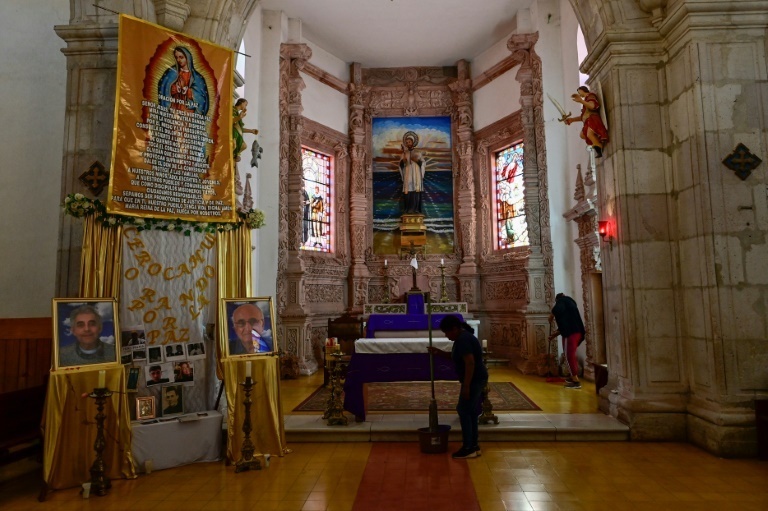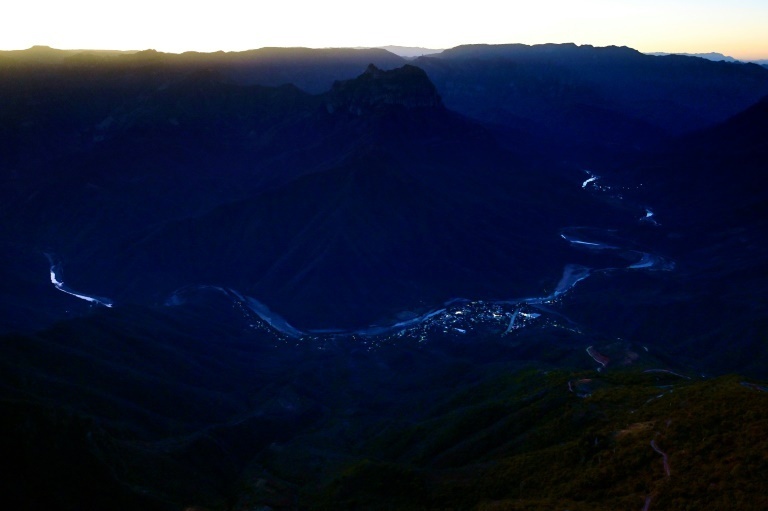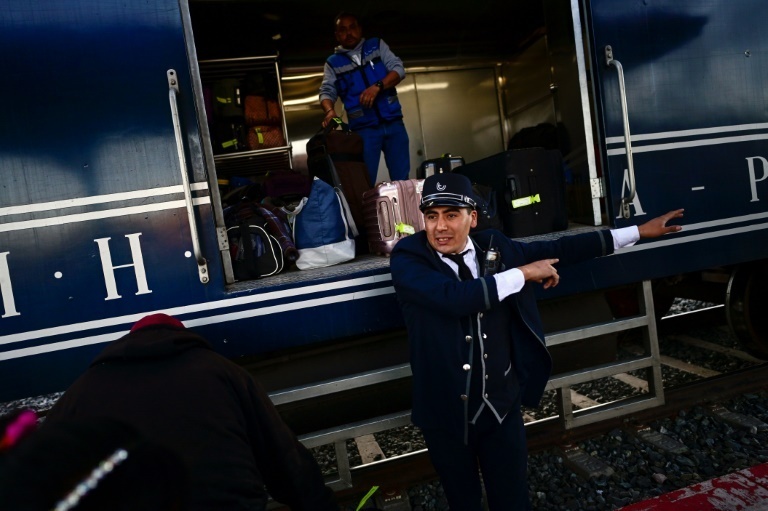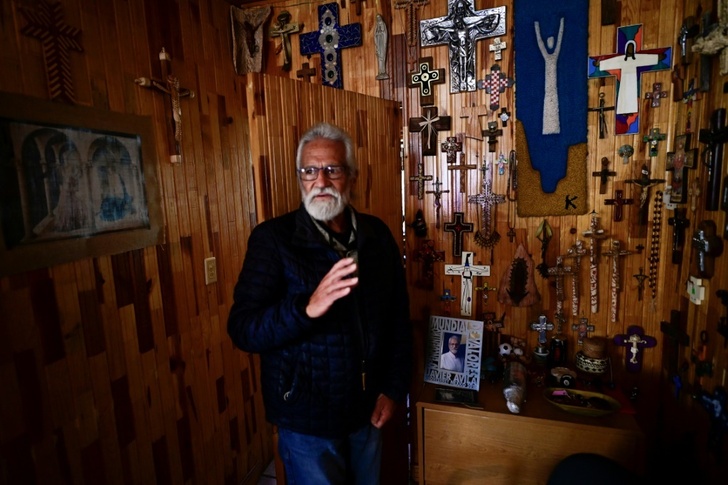Priests working in remote Indigenous communities in the rugged mountains of northern Mexico are still waiting for justice nine months after the murder of two fellow Jesuits sparked international condemnation.
Rather than leave the area due to the precarious security situation, the missionaries have strengthened their presence.
"There were three of us. And now there will be five of us," said Jesus Reyes, a Jesuit priest who witnessed the shooting by an alleged drug trafficker in the village of Cerocahui in Chihuahua state.
"We're staying here with our people," including members of the Raramuri Indigenous community that the Jesuits began to evangelize in the 17th century, he added.
In the village square overlooking the Copper Canyon, security forces watched over the religious mission.
Under a radiant sun, a few tourists stopped to visit on their way back from a nearby ultramarathon pitting legendary Indigenous runners racing against outsiders.
Inside the village's domed church, the portraits of Javier Campos and Joaquin Mora are a reminder of the grisly events that shook the community in June 2022.
Their graves are marked with two small crosses in the garden outside.
Campos, 79, and Mora, 80, were murdered inside the church while trying to defend a man -- named as tour guide Pedro Eliodoro Palma -- who was seeking refuge, according to the order.

The office of the UN High Commissioner for Human Rights in Mexico also condemned the killings, saying the priests had carried out "important social and pastoral work" among the Raramuri, or Tarahumara, Indigenous people.
Cristina Dominguez, a volunteer church cleaner, remembered the comforting presence of Campos, who was known as "the rooster" for his perfect imitation of the bird's sound.
"I have a son who disappeared 12 years ago. When that happened, the father came to my house. With these words of comfort, he helped me a lot," she said.
- Main suspect free -
A three-hour drive from Cerocahui, the Jesuits run a clinic for the Raramuri community in Creel, a stop on the Chepe tourist train line through the Copper Canyon.

He lamented the fact that the murderer is still free, despite the capture of several alleged members of his criminal gang.
"For me he is not presumed guilty. He's responsible," added Avila, who has had his own security escort for some time.
The prime suspect is allegedly a drug and illegal timber dealer in his 30s with cartel links, according to Mexican media.
"Arresting this person won't resolve the conflict. We will only begin to resolve the conflict when we start to destroy the criminal structure that the state itself has allowed to be built," said the white-bearded missionary.
Avila mocked President Andres Manuel Lopez Obrador's "hugs not bullets" strategy to tackle violent crime at its roots by fighting poverty and inequality with social programs, rather than with the army.

Just last month, security forces killed three alleged hitmen while repelling an armed attack near Cerocahui, leaving two agents injured, the Chihuahua attorney general's office said.
In the cool of the evening, a bell announced the arrival of the train in Creel station, where tourists alighted and headed for the comfort of nearby hotels.
The violence has not reduced the number of passengers riding the train between Chihuahua and Los Mochis on the Pacific coast, said Chepe deputy manager Emilio Carrazco.
"These are isolated events," he said, explaining that the train was full in December and January despite it being the low season.
"There's a lot of interest in coming to discover the Copper Canyon, which is four times bigger than the Grand Canyon" in the United States, he said.
st/dr/dw
© Agence France-Presse
Your content is great. However, if any of the content contained herein violates any rights of yours, including those of copyright, please contact us immediately by e-mail at media[@]kissrpr.com.
Source: Story.KISSPR.com

